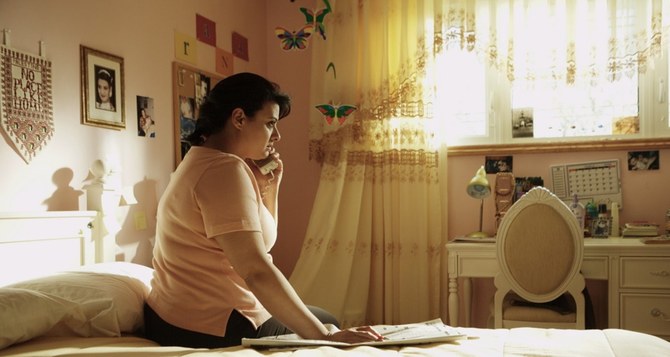DUBAI: UAE-based annual film festival Reel Palestine recently launched its “Home Edition,” allowing viewers to stream some of the finest Palestinian cinema. Most of the films are free, while some require a small rental fee.
“There is an element of escapism to watching films during times that are challenging and uncertain. We believe that cinema provides a powerful lens through which to transport yourself somewhere else, which may be very much needed for some during these times of social distancing,” co-founder Nadia Rouchdy told Arab News. “We recognize that some Palestinian films may be known for being emotional, which may not be what people are looking for at the moment; however, many of the films, if not the majority, also have a strong element of hope, resilience and determination — films that remind us how amazing humans are, how strong women are, how brave people under occupation are, how creative youth can be, how determined couples can be and more.”
We asked Rouchdy and co-founder Dana Al-Sadek to talk us through a few of their favorite films from the wide selection available on their platform. “We hope to keep Palestine top of mind and heart for those who miss their culture but also to show how powerful Palestinian cinema is,” Rouchdy said.
‘Speed Sisters’
This uplifting 2015 documentary, from award-winning filmmaker Amber Fares, focuses on strong female characters who defy social conformity to excel at their passion — race driving. The film is all about the first all-female racing team in the Middle East.
‘Gaza Surf Club’
This film is one of our favorites, not only because it is beautifully shot, but because you can see how much surfing gives fuel and energy to the characters. Surfing nourishes them, gives them joy and challenges them, even against the backdrop of occupied Gaza. The stories of families supporting their daughters so they can surf will always stay with me, and prove that you should never give up. Interestingly, the directors were actually motivated to travel to Gaza to showcase positive stories when they met a Palestinian student in Germany.
‘Amreeka’
Cherin Dabis’ “Amreeka” is the quintessential diaspora story of Palestinians but also relatable to any Arab family who has emigrated abroad. The family is instantly lovable and their challenges and successes will resonate and capture your heart. This movie reminds me that having a mixed background of two beautiful cultures is special, but shared with so many others. Truly heart-warming, and a family classic.
‘Epicly Palestine’d’
We worked with (filmmakers) Phil and Theo in Reel Palestine’s first edition. They were so excited that we loved their film about what it was like for Palestinian youths starting a skateboard culture under occupation in the West Bank. What surprised me back then was how much Phil and Theo wanted people to watch this film — they posted it for free. The short is a rare insight into what it’s like to do something that has never been done before, by a group of teenagers whose love of skateboarding comes through so strongly that it’ll be hard for you not to smile.
‘Bonbone’
Rakan Mayasi is part of the Palestinian Diaspora. Through his work in film, he’s trying to discover his own identity/ heritage. The cinematography of this short is so beautiful. You get a glimpse of the landscape while also feeling this sense of suspense throughout the entire film. The film is quite risqué, but it is based on reality — something that’s not widely known.
‘Ave Maria’
Basil Khalil’s short film was nominated for Best Live Action Short at the 2016 Oscars. When you hear the synopsis — a family of Israeli settlers crash into the wall of a West Bank convent, disturbing the nuns’ daily routine of silence — it’s not something you think will make you laugh. But Basil did an amazing job of combining comedy with warmth, all while exploring some of the nuanced complexities of living in the West Bank.
‘Palestine Underground’
For the past 10 years, Palestinian music collective Jazar Crew have been fostering a vibrant party scene in Haifa, as an alternative to the mainstream club scene. This short documentary by Boiler Room, 4:3 and Ma3azef shows that despite political and travel restrictions people have come together through the arts to express themselves. It also gives a glimpse into subcultures and the electronic music scene which we wouldn’t usually have access to on cinema screens.




















